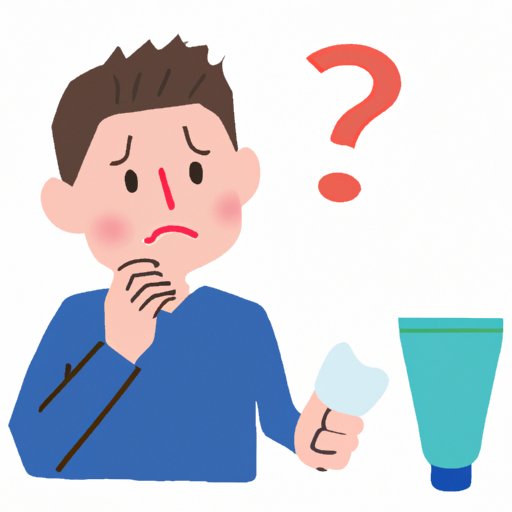
Introduction
Oral hygiene is always important, but it is especially crucial after a wisdom teeth removal surgery. Following good oral hygiene habits can help prevent any complications and promote a successful recovery. In this article, we will cover the dos and don’ts of brushing your teeth after wisdom teeth removal, the importance of oral hygiene, tips for safe toothbrushing, and common mistakes to avoid.
The Do’s and Don’ts of Brushing Your Teeth After Wisdom Teeth Removal
After wisdom teeth removal, patients should take extra precautions when brushing their teeth. Although it may be tempting to brush as usual, it is important to be gentler and avoid disturbing the extraction site. Here are some things to do and avoid when brushing your teeth after wisdom teeth removal:
- Do use a soft-bristled toothbrush
- Do brush your teeth gently
- Do avoid the extraction site
- Don’t use mouthwash for the first few days
- Don’t brush your teeth too hard
It is important to be gentle when brushing your teeth; brushing too hard can cause bleeding or irritation near the extraction site. It may also be helpful to use a saltwater rinse to clean the mouth and promote healing.
The Importance of Oral Hygiene After Wisdom Teeth Extraction
Good oral hygiene habits can help prevent infection, reduce bleeding, and promote healing after wisdom teeth removal. Taking care of your teeth post-op is critical to a successful recovery.
Patients should brush their teeth at least twice a day, and especially after eating. This will help remove any food particles that might get stuck and cause decay or infection. It is also important to use the right type of toothbrush. Patients should use a soft-bristled brush that is gentle on the teeth and gums. Brushing too hard can cause irritation or injury to the mouth.
5 Tips for Safe Toothbrushing After Wisdom Teeth Extraction
After a wisdom teeth removal surgery, it is important to be extra careful when brushing your teeth. Here are five tips for safe and effective toothbrushing:
- Use a soft-bristled toothbrush
- Brush your teeth gently
- Avoid the extraction site
- Wait a few days before brushing near the extraction site
- If brushing causes bleeding, use a saltwater rinse
It is normal to experience some discomfort while brushing your teeth after surgery. If you experience a lot of bleeding, pain, or swelling, contact your dentist or oral surgeon right away.
Maximizing the Benefits of Brushing Your Teeth Post Wisdom Teeth Removal
Good oral hygiene habits after wisdom teeth removal can help prevent infections, decay, and gum disease. Brushing regularly can also promote healing and reduce inflammation. By taking care of your teeth after surgery, you can ensure long-term dental health.
Patients should develop good brushing habits that will last beyond the recovery period. Brushing regularly and using a soft-bristled brush can also help prevent other dental problems and contribute to overall dental health.
Common Mistakes to Avoid When Brushing Your Teeth After Wisdom Teeth Removal
Although good oral hygiene habits are crucial to recovery, there are some common mistakes that people make when brushing their teeth after surgery. Here are some things to avoid:
- Brushing too hard
- Brushing too soon after surgery
- Using a medium or hard-bristled toothbrush
- Not avoiding the extraction site
- Using mouthwash too soon after surgery
By avoiding these common mistakes, patients can promote healing and prevent discomfort or infection.
Conclusion
After getting your wisdom teeth removed, good oral hygiene habits are more important than ever. By being gentle and following the right steps, you can brush your teeth safely and promote healing. Remember to brush twice a day, use a soft-bristled toothbrush, avoid the extraction site, and be patient. By taking care of your teeth, you can recover more quickly and enjoy long-term dental health.





